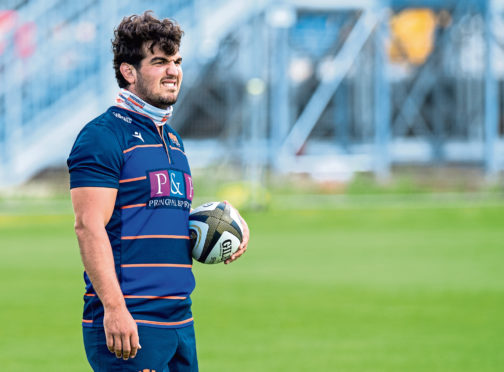After four months of lockdown, no rugby and no revenue, there’s an understandable impatience to get things going again.
This week, Scotland’s pro players returned to their natural habitats, and were finally allowed to speak to the media again. From early chats, it’s clear that the longest lay-off any of them can remember since schooldays has been actually beneficial.
Rugby’s a hard, physical, gruelling game, even for fancy dan backs. At the height of each season, the player who isn’t dealing week-to-week with some sort of niggle is a rare one, and also very lucky.
Last season Scotland hooker Stuart McInally got an extra six-week break inbetween the end of the Rugby World Cup and re-starting domestic rugby, rightly so as he’d had only a brief break from one season to the next playing in one of the game’s real coal-face positions.
Even then, the Edinburgh captain eventually reported for Scotland Six Nations duty in January with a shoulder issue and a rib injury – not serious enough to have him stand down, but enough that he knew about it every time he took a hit.
Lockdown, he told us this week, had finally given him the time to rest his body and get back to full health. The same was true of almost every one of his Edinburgh and Scotland team-mates, he said; one aspect of the “voluntary sessions” to restart training was that everyone was there, somewhat of a rare occurrence.
Had there been no pandemic, the leading Scots players would have finished the Six Nations, concluded the PRO14 season (with both pro teams in the play-offs, most likely) and then had a fortnight or so off before Gregor Townsend summoned them together prior to a three-week trip to South Africa and New Zealand playing the world champion Springboks twice and the All Blacks away for the first time since 2000.
Then they’d come back from that almost straight into their club pre-season. That extra break in October for McInally would just about be his only respite in the best part of two full seasons.
A prominent player like McInally is well looked after in Scotland, with it prescribed that he only ever starts a handful of games in succession. Edinburgh and Glasgow both have big squads to allow as much rotation as possible.
But burnout and player welfare continues to be an issue in Scotland and especially elsewhere. The demands on English and French club players at times seem almost intolerable.
Anthony Watson, the Bath, England and Lions wing, suggested recently that the optimum number of games for a pro player to function at his best in a season was something in the region of 20. The international Scots all play roughly 30 a season, and they’ll be looking at five more if they play for a leading club in England or France.
So lockdown has given players more time off than they’ve ever had. However, there’s every sign that once we’re up and running again, the demands on them will more than make up for this.
No rugby has meant no revenue, and every union in the world is feeling the pinch. As a result, we have presented this week an international programme for an extended Autumn series designed to placate broadcasters and – hopefully – fill the seats of our national stadiums.
Scotland will play a warm-up game against Georgia, then the postponed Six Nations match against Wales, before playing France, Japan and Italy on successive weeks. If successful in those games, they might play two more on the end of it.
Before that, they’ll have polished off the last PRO14 season and started a new one. And on return from the autumn, it’s back into domestic and European rugby, followed by the Six Nations in the spring.
26 games in 27 weeks is the schedule that some English players are facing. There should be some rotation involved in that, but with club demands there’s no guarantee.
Remember also that the players will be asked to play more for less money at least until the game gets back on its financial feet again. Wouldn’t sound too appealing if it were you, does it?
McInally speaking this week was diplomatic. “Our jobs rely on the revenue coming in, and we have had a brilliant three months off,” he said.
“Maybe it is time to knuckle down and find ourselves playing a bit more this year. That might just be the way of it.
“I can see both sides. As a player the last thing you want to do is burn yourself out and risk more injuries.”
At Edinburgh, he stated, players were encouraged to take owenrship and speak up if they feel “roughed up”. Despite outward appearances, Richard Cockerill knows the importance of rest and imposes it on his leading players.
But what happens in Scotland – and Ireland, where player rest seems paramount – is not mirrored elsewhere.
The players have had a welcome and overdue break. The fear is that their welfare will now become secondary to the desperation to make up the lockdown shortfalls. It definitely shouldn’t.
